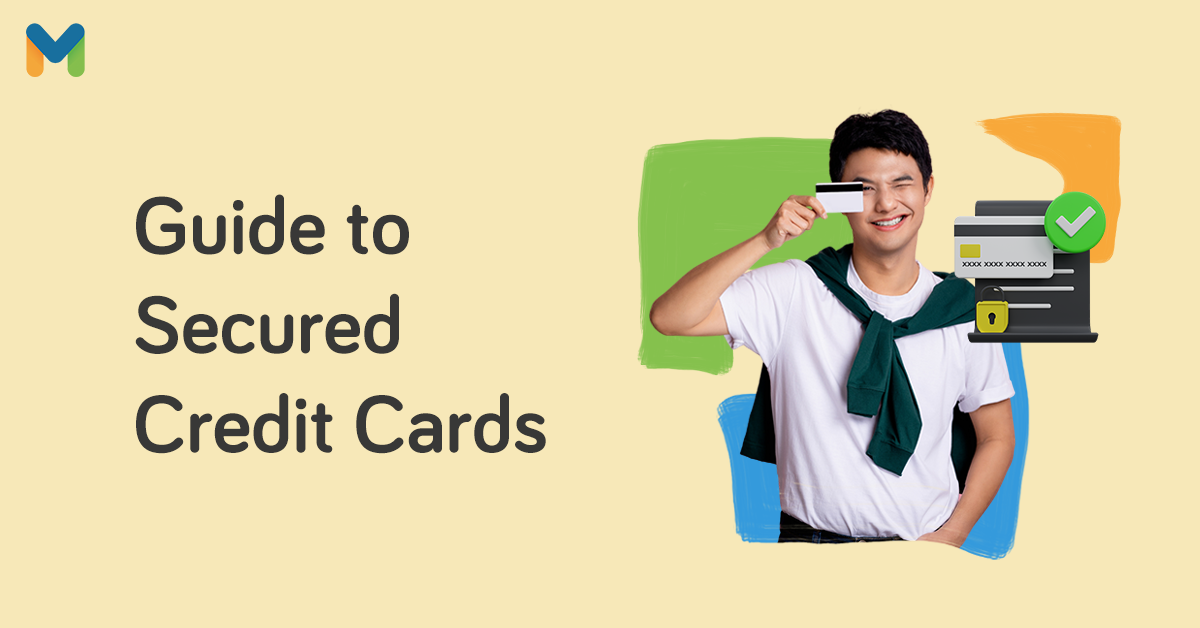You’re asked to key in your card CVV whenever you purchase something online. But have you ever wondered what exactly the CVV code on your credit card is for?
Aside from your card number, date of issue, and date of expiry, the CVV is a very important number you should always keep safe and private.
What exactly is CVV on a credit card, and how does it help prevent fraud and overcharging on your credit card? Keep reading to learn more.
What is the CVV on a Credit Card?
First, let's discuss what the CVV stands for on a credit card.
The meaning of CVV is card verification value, an authentication procedure for preventing credit card fraud, especially with the prevalence of online transactions.
Some banks call it the card security code (CSC), card verification data (CVD), card verification value code, card verification code (CVC), or card code verification (CCV).
Developed by Michael Stone in 1995, the CVV was originally an 11-character alphanumeric code. The UK Association of Payment Clearing Services adopted and revised the code to three digits.
Mastercard was among the pioneers and started issuing CVV numbers on its cards in 1997. American Express began issuing them in 1999 in response to the growth in online transactions, and Visa in the U.S. started issuing them in 2001.
Visa and Mastercard cards have a three-digit CVV, while Amex cards have a four-digit CVV.
How the CVV on a Credit Card Works
-Oct-18-2023-02-52-03-0029-AM.png?width=675&height=450&name=Pics%20for%20blog%20-%20600x400%20(8)-Oct-18-2023-02-52-03-0029-AM.png)
The CVV code functions as the primary security feature for card-not-present transactions, such as when you shop online or make recurring payments for online memberships or subscriptions.
CVVs cannot be saved by online portals, which means any transaction on your card can’t be authorized without entering the CVV to confirm the transaction. This extra layer of protection helps verify the credit cardholder’s identity and prevents anyone with your credit card number from using it.
On a related note, you may be wondering what the CVV is on debit cards. The meaning of CVV on debit cards is the same. The online transaction will not be confirmed and the amount will not be debited from your linked bank account if you don't provide the correct CVV code or number.
Read more: Debit Card vs. Credit Card: Which Card Should I Use?
Where to Find the CVV on Your Credit Card

Photo: Metrobank (Facebook)
FThe credit card CVV is usually printed on the back of the card, next to the signature box or panel and just below the magnetic stripe. It's not to be confused with the last four digits of your card that appear before the CVV.
For example, to find your Metrobank CVV or BPI CVV (or other Visa, Mastercard, and other credit card brands in the Philippines), look at the back for the three-digit number.
Note that some credit card brands, like American Express, use four digits, which you can find on the front of the card.
🎁 Get approved and rewarded a gift of your choice worth up to ₱3,499
Eligible cards: Metrobank Titanium Mastercard®, Platinum Mastercard®, and World Mastercard®
Promo period: Until June 30, 2025
Get rewarded when you apply and get approved for your preferred card via Moneymax. Choose between eGift worth ₱2,000, Oral B Vitality 100 worth ₱2,095, or the Mi Smart Air Fryer 3.5L worth ₱3,499 🎁
Per DTI Fair Trade Permit No. FTEB-226753. Series of 2025. Terms and conditions apply.
Note: Applicant must be an existing credit cardholder in good standing for at least six months.
What are the Types of CVV on a Credit Card?
Did you know that your credit card has more than one CVV? You’ll use both depending on the credit card transaction.
📌 CVV1
The CVV1 is encoded on the second track of your card’s magnetic stripe and is used for card-present transactions. It validates that the card is in the owner's possession and allows the code to be automatically retrieved once it goes through a payment device.
📌 CVV2
What is the meaning of CVV2 in credit cards? Meant for card-not-present transactions, the CVV2 code validates a payment even without the cardholder's actual credit card and verifies transactions made online or over the phone.
📌 iCVV
There’s also the dynamic CVV, or iCVV, which stands for Integrated Chip Card Verification Value. It's used in contactless cards and chip cards.
Moreover, the iCVVs generated are constantly refreshed, making it harder to steal or copy.
Related: 9 Useful Features Your Credit Card Should Have
How to Keep Your CVV Code Safe: 6 Security Tips
-Oct-18-2023-02-53-19-5003-AM.png?width=674&height=449&name=Pics%20for%20blog%20-%20600x400%20(9)-Oct-18-2023-02-53-19-5003-AM.png)
Here are some tips to protect your CVV and prevent credit card fraud and other scams.
🛡️ Don’t Ever Share Your CVV
Your card’s CVV is crucial financial information, just like your ATM or e-wallet PIN. So never give it to anyone in person, online, or over the phone.
Ignore unsolicited requests for your credit card information in text messages, emails, and phone calls. Don’t read your credit card details publicly or post them on social media. Someone can use them to make unauthorized purchases using your card information.
🛡️ Never Write Down Your CVV
Don’t write down your credit card number or CVV in your planner or notepad apps on your phone, tablet, or laptop. If you have a photo of your credit card and CVV in your phone gallery, delete that as well.
Instead, memorize your CVV or opt for an online password manager for a secure way to store your financial information.
🛡️ Shop Only at Secure Websites
If you love to shop online, only visit trusted and secure websites. Look for the “https:” in the URL and the SSL padlock on the browser window.
Double-check that it’s a legitimate website, too. Fraudsters spoof websites with legitimate logos, colors, and fonts to bring visitors to a phishing site and steal credit card information.
🛡️ Shop With a Virtual Credit Card
If you’re shopping online, use your virtual credit card as much as possible. Banks like BPI and Metrobank issue virtual card companions with different card numbers, CVV, and lower credit limits for more secure online transactions and controlled spending.
🛡️ Use Tools to Protect Sensitive Information
Install data protection tools or software that will protect sensitive personal or financial information. Use strong cybersecurity software to scan for viruses and protect yourself from threats that compromise your data, like phishing attacks, keyboard-logging software, and malware.
It’s also recommended to use a VPN when browsing online, especially if you’re using public Wi-Fi, as it encrypts your data and masks your IP address.
🛡️ Monitor Credit Card Activity
Review your credit card statements regularly for unauthorized charges. If you spot any suspicious activity, contact your card issuer immediately and block the card to prevent any more charges on your card.
Read more:
- Credit Card Dos and Don’ts: What Should You Do and Not Do with Your Card?
- No Overspending and Late Payments: How to Manage Multiple Credit Cards
Final Thoughts
Without a CVV, online transactions on your credit card won’t go through and can’t be completed. As such, the CVV on a credit card can help minimize and protect you from fraud, but only up to a point.
Keep in mind that the CVV is not a fail-safe credit card feature. Not all online merchants ask you to enter your CVV. Anyone with your card number and expiration date can use it as they please. So always keep your credit card information safe and be on the lookout for any signs of the most common scams.
💳 Get Your Next Credit Card via Moneymax
Thinking of applying for another credit card? Compare some of the best options in the Philippines and apply through Moneymax below:
| Credit Card | Best For | Key Features |
|
UnionBank Rewards Credit Card
|
Rewards
|
|
|
Metrobank Platinum Mastercard®
|
Dining
|
|
|
BPI Rewards Card
|
Beginners
|
|
|
UnionBank Lazada Credit Card
|
Online Shopping
|
|
|
Petron BPI Card
|
Fuel Purchases and Auto Services
|
|
Source: [1] Evolving Landscape of Financial Fraud (LinkedIn, May 2023)







![[UPDATE]_MB_CC_Choose_Your_Welcome_Gift_(June_2025)__1200x350](https://www.moneymax.ph/hs-fs/hubfs/%5BUPDATE%5D_MB_CC_Choose_Your_Welcome_Gift_(June_2025)__1200x350.png?width=438&height=128&name=%5BUPDATE%5D_MB_CC_Choose_Your_Welcome_Gift_(June_2025)__1200x350.png)







